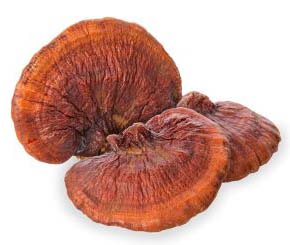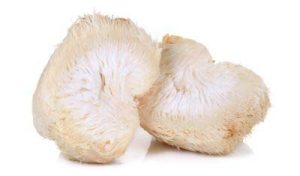
Every person is unique!
Our experienced team will be happy to advise you in detail and free of charge on all matters relating to your health. Book your consultation appointment now:
Natural remedies for depression: mycotherapeutic measures can help
August 23, 2021
Dipl.-Biol. Dorothee Ogroske et al.
In addition, in many cases, vital mushrooms are a good way to support conventional medicine and promote recovery. Read more here about the signs of depression, how it develops, and what steps you can take if you become ill.
What are the symptoms of depression?
When depression is mentioned, many people first think of dejection, exhaustion and social withdrawal. That describes the core symptoms of depression quite well. However, the mental clinical picture is accompanied by a number of other problems that affect both the psyche and the body: Those affected feel helpless, overwhelmed and exhausted, without being able to pinpoint the exact cause. They can neither see anything good in their current life situation, nor do they have high hopes for the future. Life seems downright meaningless to them. Some people feel nothing at all during a depressive phase. A feeling of inner emptiness spreads.
 Outsiders sometimes observe that the depressed person’s gestures and facial expressions become impoverished. The speech becomes quiet and monotonous. In the process, those affected suffer from feelings of guilt and inferiority. They constantly blame themselves, feel guilty and unloved. In the worst case, this results in self-hatred, which, together with the feeling of meaninglessness of existence, leads to thoughts in the direction of suicide. Even friends or formerly beloved leisure activities can do little against this. Usually depressed people withdraw from their social life anyway.
Outsiders sometimes observe that the depressed person’s gestures and facial expressions become impoverished. The speech becomes quiet and monotonous. In the process, those affected suffer from feelings of guilt and inferiority. They constantly blame themselves, feel guilty and unloved. In the worst case, this results in self-hatred, which, together with the feeling of meaninglessness of existence, leads to thoughts in the direction of suicide. Even friends or formerly beloved leisure activities can do little against this. Usually depressed people withdraw from their social life anyway.
Depression is also dramatic because it affects all areas of the sufferer’s life. They not only depress the mood, but also turn both private and work life into sometimes unsolvable tasks. Some sufferers report an inner restlessness, the incessant feeling of being under tension. The consequences are impatience and problems with concentration, which can extend to memory lapses. Experts refer to this as “brain fog”. Thinking rationally is hardly possible in such a situation, which is why decisions are so difficult. Natural remedies for depression can have a calming effect at this point and support those affected in regaining clear thoughts.
More than just dejection
Many are aware that depression is associated with dejection and withdrawal. What is less well known is that symptoms also manifest themselves on a physical level. Psychologists speak of “somatization” in this context. Those affected sometimes suffer from diffuse pain, for example in the back, head or stomach.  Dizzy spells and persistent fatigue are also typical. In addition, there are sleep disorders in the form of problems falling asleep and staying asleep. Again, natural remedies for depression such as vital mushrooms can provide gentle support. Unlike sleeping pills, they are not addictive.
Dizzy spells and persistent fatigue are also typical. In addition, there are sleep disorders in the form of problems falling asleep and staying asleep. Again, natural remedies for depression such as vital mushrooms can provide gentle support. Unlike sleeping pills, they are not addictive.
Since the brain and intestine are in a close exchange with each other via the so-called intestine-brain axis, symptoms can occur in the gastrointestinal tract. Sometimes depression is accompanied by irritable bowel syndrome, for example. Typical complaints such as constipation or diarrhea are further aggravated by loss of appetite and cravings. Affected individuals sometimes report stomach pain or nausea. Ultimately, the symptoms are as varied as the individuals affected.
Along with depression, other mental illnesses such as panic attacks, anxiety and obsessive-compulsive disorders occasionally occur. Here vital mushrooms, which have a balancing effect on the psyche, can be a helpful accompaniment to psychotherapeutic measures.
The different manifestations of depression
It may happen that someone consistently suffers from the symptoms of depression. However, a phasic course is much more common, with periods of depressive symptoms alternating with periods without symptoms. The length, frequency and severity of the individual phases can vary greatly. Some sufferers experience very sharp and rapid fluctuations from being sad to death to having no symptoms within a few days. Others remain in a stupor of sadness and self-reproach for months before they see light on the horizon again. In individual cases, there may even be years between each depressive period.
 It is very important to keep in mind the phased progression of depression. This is because during acute periods, sufferers often lack the drive to seek help. In the symptom-free phase, they again think that they do not need medical support. At the same time, this is precisely a good time to look for therapy. A renewed low mood can thus be mitigated or even prevented. In parallel, natural remedies against depression in the symptom-free periods are a help to cushion new deteriorations somewhat.
It is very important to keep in mind the phased progression of depression. This is because during acute periods, sufferers often lack the drive to seek help. In the symptom-free phase, they again think that they do not need medical support. At the same time, this is precisely a good time to look for therapy. A renewed low mood can thus be mitigated or even prevented. In parallel, natural remedies against depression in the symptom-free periods are a help to cushion new deteriorations somewhat.
A special case of depression is bipolar disorder. In this case, the sufferers fluctuate between two extremes: In addition to depressive episodes, they experience so-called “manic” phases. During this time, they are in a very good mood and feel like the world belongs to them. Affected persons quickly become overconfident and in this state sometimes buy far more than their savings account allows.
Other forms of depression are due to special circumstances in the lives of those affected. For example, postpartum depression occurs in some women because of the hormonal changes that occur after childbirth. Winter depression – as the name suggests – goes hand in hand with the dark season and usually improves again in the spring. Old people can also suffer from so-called “old-age depression”, which results primarily from the changed life situation in old age.

Every person is unique!
Our experienced team will be happy to advise you in detail and free of charge on all matters relating to your health.
Who is affected by depression?
As already mentioned at the beginning, depression is a really serious problem worldwide. Among mental illnesses, it is by far the most common. In Germany, too, it is estimated that up to six million people are currently affected. This puts us around 50% above the European average.  Unfortunately, children and adolescents are also increasingly affected by depression. Especially for them, it is important to initiate appropriate therapy in time to pave the way for a healthy and fulfilling adult life. Natural remedies for depression are also a valuable supplement to conventional medicine in this age group to support recovery.
Unfortunately, children and adolescents are also increasingly affected by depression. Especially for them, it is important to initiate appropriate therapy in time to pave the way for a healthy and fulfilling adult life. Natural remedies for depression are also a valuable supplement to conventional medicine in this age group to support recovery.
Every year, around 150,000 depressed people in Germany attempt suicide. About 10,000 actually meet their deaths in the process. Against the backdrop of Corona, these data are all the more alarming. Indeed, significantly more people became newly ill with depression during the pandemic than in previous years. Estimates put the number of people affected worldwide at around 28% more, with figures based mainly on data from industrialized nations such as Germany, North America and Australia.
But who is at particularly high risk of developing depression? Basically, women are affected about twice as often as men. Young women in particular, with multiple burdens of household chores, work, and caring for young children, are at increased risk of disease. The rate among adolescents and young adults increased sharply, especially during the pandemic. In general, however, depression can occur at any age and always requires individually tailored therapy. Physical health should always be monitored as part of treatment, as depression is sometimes associated with physical illness. Natural remedies for depression taken concomitantly can then also be adapted to the therapy of this underlying disease.
How does depression develop?
Our psyche is extremely complex and the same is true for the development of depression. To date, it has not been comprehensively researched how such a disease occurs. However, scientists agree that various factors always interact on a biological, psychological and social level.
 It is also clear that there is a genetic predisposition to depression. Thus, the disease is more common in some families than in others. In addition, early childhood experiences often play a role. Stressful experiences, trauma, and learned destructive thinking patterns promote the development of a mental disorder in adulthood. Experts also call such favorable conditions for a disease “vulnerability”.
It is also clear that there is a genetic predisposition to depression. Thus, the disease is more common in some families than in others. In addition, early childhood experiences often play a role. Stressful experiences, trauma, and learned destructive thinking patterns promote the development of a mental disorder in adulthood. Experts also call such favorable conditions for a disease “vulnerability”.
If a high vulnerability coincides with a stressful life event, depressive symptoms may develop. Such an event can be, for example, the death of a close person, a separation, an accident or even an extremely stressful phase at school, university or work. On the other hand, those who lead a quiet and harmonious life can remain healthy throughout their lives despite high vulnerability.
Physical factors
However, the reasons for depression are not only to be found on a genetic and psychological level. Researchers have now found many features in the bodies of depressed patients that have a link to the disease. So these are vulnerabilities at the physical level. These depression-promoting factors include, for example:
- Imbalance in the neurotransmitter system
- Heart disease (can be cause and consequence)
- Diabetes
- Problems with the adrenal glands
- Chronic inflammations (e.g. rheumatism)
- Neurodegenerative diseases (Parkinson’s, Alzheimer’s)
- Thyroid dysfunction (e.g. Hashimoto’s)
- mitochondrial exhaustion
- Accumulation of environmental toxins and neurotoxins (heavy metals, pesticides, phthalates, etc.)
- certain drugs
- HPU
- oxidative stress
- Nutrient deficiency (e.g. B vitamins, vitamin D)
- Intestinal diseases (e.g. dysbiosis, leaky gut, inflammation)
- hormonal changes (e.g. menopause, estrogen dominance)
- Histamine excess (e.g. due to nutrition, dysbiosis)
What happens in the body and brain during depression?
Studies of depressed individuals show that the illness not only brings changes in experience and behavior. Researchers even found differences in the brain and nerves compared to healthy people.
Changes in the brain
For example, the researchers found that in depressed people, regions of the brain that are associated with negative emotions and stress are particularly active. The areas for positive emotions, on the other hand, are comparatively inactive. From this finding, an approach for the therapy of depression is derived, in which the formation and differentiation of neurons in a specific area of the brain, the hippocampus, is to be supported.
The importance of messenger substances
- mood-lifting/ antidepressant
- relaxing
- sleep-inducing
- analgesic
- motivational
- appetite regulating
- Regulation of digestion and intestinal function
Starting points for therapy
Since the availability of tryptophan is a limiting factor for the synthesis of serotonin, increased intake may alleviate depressive symptoms. On the other hand, the (excessive) degradation of tryptophan must also be inhibited. For example, certain messenger substances in the body (cytokines) ensure the increased breakdown of tryptophan. When inflammation is present, a particularly large number of cytokines circulate in the organism. This is where various natural remedies against depression, such as the vital mushroom Cordyceps, come in.
Another starting point is the breakdown of neurotransmitters by the enzyme monoaminooxidase (MAO). If this enzyme is inhibited, fewer monoamines such as serotonin, norepinephrine and dopamine are automatically broken down. Consequently, their concentration increases. This is where the so-called MAO inhibitors come into play. However, the medicinal mushroom cordyceps is also able to reduce the activity of monoaminooxidase somewhat.
Serotonin deficiency viewed holistically
- Fructose malabsorption: Free fructose combines with tryptophan in the intestine, which can then no longer be absorbed
- Vitamin B6 and B3 deficiency
- Zinc and magnesium deficiency
- Insulin resistance
- Cancer
- chronic latent infections
How to treat depression?
Drug therapy: antidepressants
Psychotherapy
 The exact therapy is very individual. In addition to the causes of the depression, it also takes into account the specific life circumstances and other factors in order to provide the most adequate assistance possible. In addition, there are various therapeutic procedures that differ in their view of the disease.
Complementary to psychotherapy, naturopathy has its own helpful remedies. They can help relax, boost drive and soften mood lows. For winter depression, for example, the administration of vitamin D can have a beneficial effect. In this context, it is important for those affected to have their thyroid function checked. Learn now how vital mushrooms can also be a useful accompaniment to conventional medical measures.
The exact therapy is very individual. In addition to the causes of the depression, it also takes into account the specific life circumstances and other factors in order to provide the most adequate assistance possible. In addition, there are various therapeutic procedures that differ in their view of the disease.
Complementary to psychotherapy, naturopathy has its own helpful remedies. They can help relax, boost drive and soften mood lows. For winter depression, for example, the administration of vitamin D can have a beneficial effect. In this context, it is important for those affected to have their thyroid function checked. Learn now how vital mushrooms can also be a useful accompaniment to conventional medical measures. How do vital mushrooms help with depression?
Which vital mushrooms help with depression?
Cordyceps
The central effect of cordyceps on depressed individuals is generally a restorative one. If it is taken over a longer period of time, the persons concerned feel physically as well as mentally more powerful. This comes from its ingredient cordycepin. It strengthens the mitochondria, allowing them to provide more energy. The adenosine also improves blood circulation.
In addition, cordyceps harmonizes the hormonal system. A balance of sex hormones is exceedingly important for our mental health.  Cordyceps helps to create more harmony by regulating the release of estrogen, progesterone as well as testosterone. This ability of the vital mushroom is a great help, for example, during menopause. Since menopause in itself is a risk factor for depression, cordyceps can be used here very well preventively. In addition, cordyceps has a strong influence on the adrenal cortex. There it regulates the release of the “stress hormone” cortisol.
Cordyceps helps to create more harmony by regulating the release of estrogen, progesterone as well as testosterone. This ability of the vital mushroom is a great help, for example, during menopause. Since menopause in itself is a risk factor for depression, cordyceps can be used here very well preventively. In addition, cordyceps has a strong influence on the adrenal cortex. There it regulates the release of the “stress hormone” cortisol.
Importance of cordycepin
Studies have shown that cordycepin has a positive effect on the neurotransmitter system. In one study, scientists regularly administered cordycepin to depressed mice over an extended period of time. Based on this one substance alone, the mice became more active over time and turned to more positive stimuli. At the physiological level, it was shown that the concentration of the cytokines TNF-alpha and interleukin 6 decreased in the hippocampus. At the same time, the nerve growth factor BDNF increased. Thus, cordycepin appears to primarily counteract the brain changes and inflammatory processes associated with depression.
Other health promoting properties
In addition to the above-mentioned specific effects at the level of the nervous system, the substances from cordyceps can alleviate depression in many other ways. Thus, the vital mushroom strengthens the organs kidney and liver, which are so important for detoxification. It supports the elimination of harmful substances from the organism and at the same time develops an anti-inflammatory effect. It is also rich in antioxidants such as superoxide dismutase and glutathione, which means a certain protection of all body cells from free radicals. Finally, cordyceps has a neuroprotective effect and a regulating influence on blood sugar.
Reishi
For centuries, alternative medicine has used reishi to relieve vegetative symptoms that can occur along with depression. It can alleviate stress and associated physical symptoms such as palpitations, insomnia, sweating and gastrointestinal complaints. It is also said to get the emotions flowing. Since depression sometimes hides pent-up anger and aggression, this effect can bring sufferers a little closer to recovery.
 Reishi is also helpful as a natural remedy for depression because it promotes health in a holistic way. Its polysaccharides, for example, support a healthy intestinal flora, which ultimately has a positive effect on the synthesis of serotonin and GABA. By also strengthening the liver and supporting it in its work, it ensures smooth detoxification. In doing so, it promotes the binding and elimination of toxins in a variety of ways, including strengthening the kidney.
Reishi is also helpful as a natural remedy for depression because it promotes health in a holistic way. Its polysaccharides, for example, support a healthy intestinal flora, which ultimately has a positive effect on the synthesis of serotonin and GABA. By also strengthening the liver and supporting it in its work, it ensures smooth detoxification. In doing so, it promotes the binding and elimination of toxins in a variety of ways, including strengthening the kidney.
Other useful properties of reishi when used as a natural remedy for depression include.
- Improvement of the oxygen saturation of the blood
- Stimulation of the metabolism
- antihistamine effect
- antioxidant effect
- Immune modulation: prevention of infections and autoimmune diseases
- anti-inflammatory effect
- Pain relief
Hericium
Among the vital mushrooms, Hericium stands out for its nerve-strengthening effect. The erinacins and hericenones it contains stimulate both nerve growth factor NGF and brain-derived neutrophic factor (BDNF). In plain language, this means a chance for the brain to form new nerves and achieve greater neuroplasticity. In addition, Hericium supports myelin formation. All this counteracts the altered activity of the brain of patients with depression. In particular, scientists hope that strengthening the nerves in the hippocampus will significantly alleviate the symptoms.
As a result of its nerve-strengthening effect, the following changes can be observed in people who regularly take Hericium for a long time:
- Improve concentration
- Memory improvement

- better mood
- Fewer fears
- Stress Reduction
- Sleep improvement
Support for the intestine
Gut and brain are very closely related through the gut-brain axis. For example, a large proportion of the messenger substances that are important for the central nervous system are produced in the intestine. In the case of serotonin, this proportion is around 90 %! Therefore, Hericium as a natural remedy for depression must not be neglected its strengthening effect on the “abdominal brain”: It generally supports the regeneration of the mucous membranes in the entire gastrointestinal tract, which counteracts inflammation and diseases such as irritable bowel syndrome or leaky gut. A healthy mucosa can better absorb important nutrients and food intolerances are less likely. Through its prebiotic ingredients such as polysaccharides and chitin, the vital mushroom also promotes a healthy intestinal flora.
Findings from research
Pleurotus
The vital mushroom Pleurotus is often administered in addition to Hericium, as it also has a positive effect on the intestinal flora. Its chitin and fiber also bind toxins in the intestine. Its use in depression is thus indicated primarily when there is a disturbed intestinal flora or exposure to pollutants. Pleurotus can also improve absorption when B vitamins are deficient.
ABM and maitake
The ABM is recommended by mycologists when depression is related to allergy or autoimmune disease. It namely supports the immune system to get back into balance.
Zusammen mit dem Maitake kann er außerdem bei Depressionen, die auf einen Diabetes zurückgehen, gute Hilfe leisten. Both vital mushrooms have a regulating effect on blood sugar levels. This makes them an effective natural remedy for type 2 diabetes.
Its positive influence on fat metabolism also benefits people suffering from metabolic syndrome. Fatty tissue, particularly in the abdominal area, is usually associated with chronic inflammation, which in turn is a risk factor for depression. Finally, researchers believe that maitake even has a direct antidepressant effect via the dectin-1 receptor.
Where do I buy vital mushrooms?
We recommend that you only take vital mushrooms from German organic cultivation. Because only with these high quality standards you can be sure that the medicinal mushrooms have not come into contact with poisons from soil or pesticides. Indeed, fungi absorb environmentally harmful substances and pass them directly to their consumers.
 In addition, powder has proven itself many times as a dosage form. The important thing here is that it is made from the whole mushroom and it has been dried at less than 40° Celsius. Higher temperatures would destroy valuable ingredients. Since even dry powder does not keep indefinitely and possible mold on it is almost impossible to detect, capsules are the safest form of intake.
In addition, powder has proven itself many times as a dosage form. The important thing here is that it is made from the whole mushroom and it has been dried at less than 40° Celsius. Higher temperatures would destroy valuable ingredients. Since even dry powder does not keep indefinitely and possible mold on it is almost impossible to detect, capsules are the safest form of intake.
Please consult your therapist before use!
DO YOU HAVE ANY QUESTIONS?
We will gladly take time for you. In our free consultation we answer individually and personally all your health questions under:
